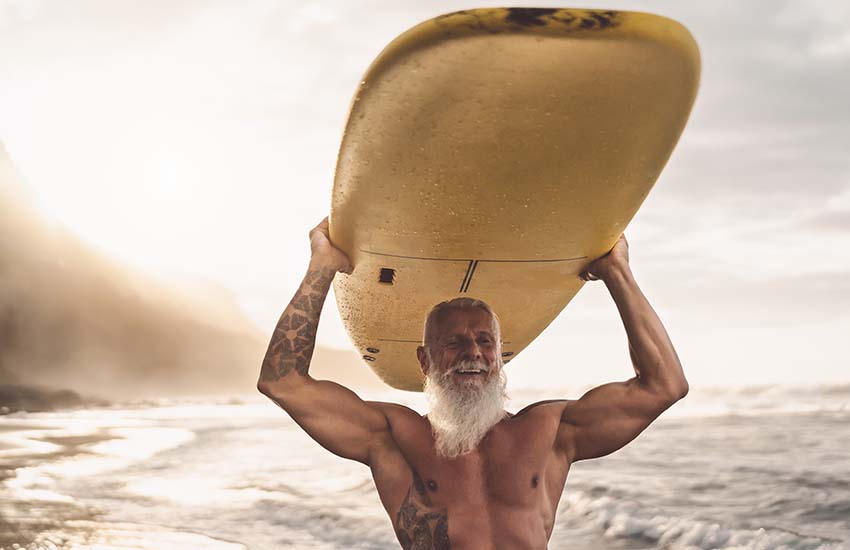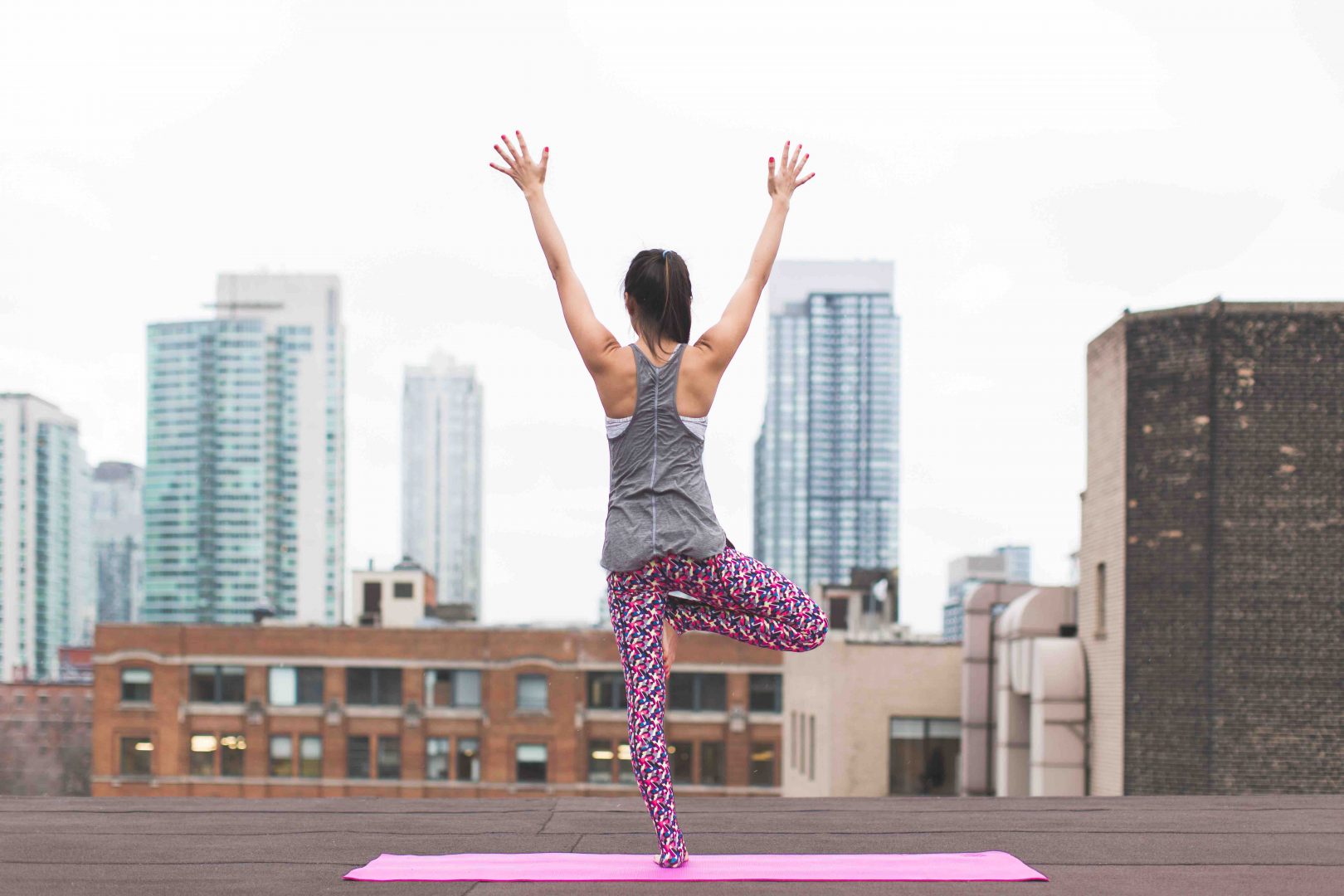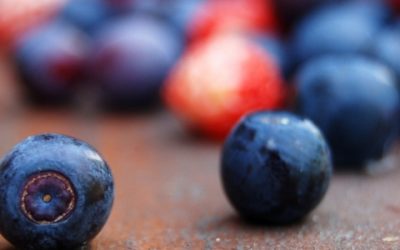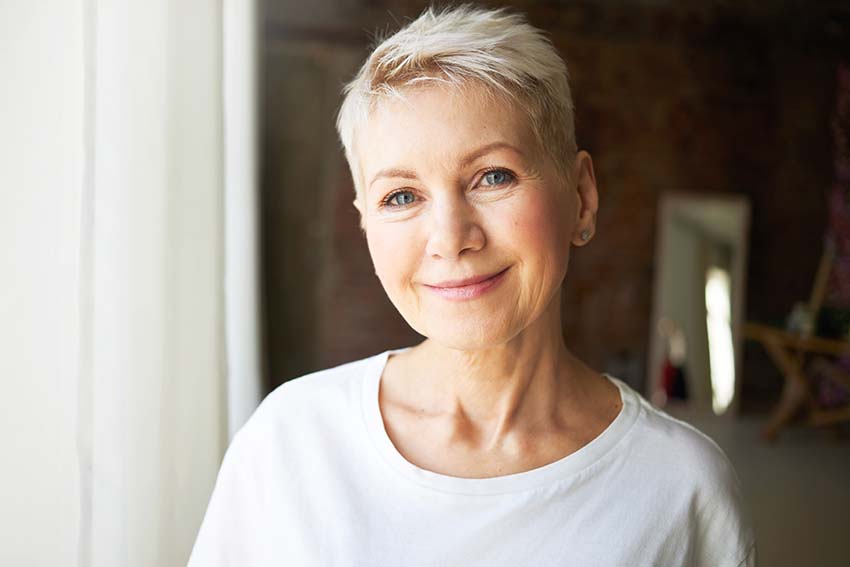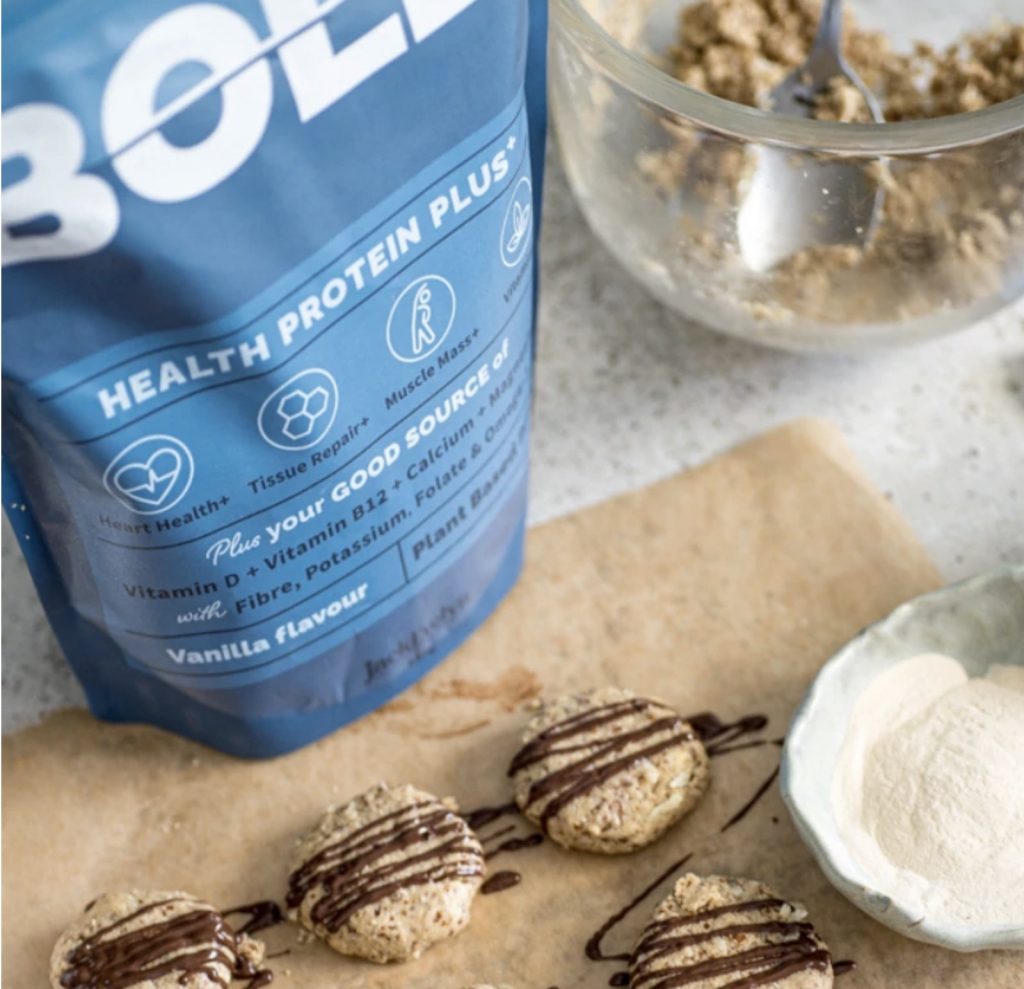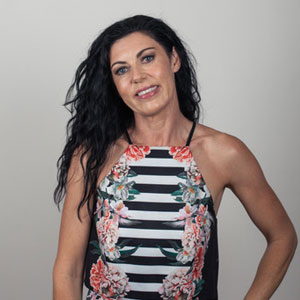Getting older is a fact of life, and as my dad says, much better than the alternative! Unfortunately, a side-effect of the numbers ticking over on the chronological clock, a lot of the body’s functions decline. Wait. There is good news. You do not have to accept this. You can play an active part in the way you choose to age. Ensuring your diet is healthy is an obvious start. And ensuring you’re getting enough protein is key!
By 50 you will begin to gradually lose skeletal muscle. This loss is known as sarcopenia, and is common in the elderly. It is also worsened by chronic illness, poor diet, stress or inactivity. Increasing the amount of protein you eat to the upper end of the RDI range, as well as weight bearing exercise, can help maintain muscle mass and strength. This is vital for you ability to stay mobile, reduces your risk of injury and, most importantly allows you to age healthy.
The Nuts & Bolts of Protein
After water, our body is mostly composed of protein – it is the main component of cells and are essential to life. So it stands to reason, that protein is an essential part of our diet and we need to eat a variety of foods that contain protein.
Protein rich foods include flesh foods (poultry, beef, lamb and fish), eggs, dairy, nuts, seeds, legumes (beans and lentils) and some grains. If you are vegan or vegetarian, you will need to get your protein from plant sources. And as we now know, these plant sources are highly nutritious and less toxic on your body.
When protein is digested, it is broken down into amino acids, which are chemically linked to each other by peptide bonds. There are about 20 different amino acids that can be put together in different combinations to make up the millions of proteins found in nature. The two broad classes of amino acids are those that can be made by the body (non-essential amino acids) and those that must be supplied through your diet (essential amino acids).
Did You Know?
The body uses amino acids in three main ways:
- Protein synthesis – new proteins are created constantly. For example, as old, dead cells are sloughed off the skin surface, new ones are pushed up to replace them.
- Precursors of other compounds – a range of substances are created using amino acids, (for example, enzymes, hormones, the brain chemical (neurotransmitter) serotonin and the ‘fight or flight’ chemical adrenalin).
- Energy – although carbohydrates are the body’s preferred fuel source, about 10 per cent of energy is obtained from protein.
How Much Is Enough?
The amount of protein you need depends on your weight, age and lifestyle. As a rough guide, the recommended dietary intake (RDI) for protein (measured in grams per kilogram of bodyweight) is:
- 0.75 g per kg for adult women
- 0.84 g per kg for adult omen
- 1 g/kg for pregnant and breastfeeding women, and for men and women over 55-60
For example, a 75 kg adult male would need 63 g of protein per day. It is recommended that up to 25 per cent of total energy intake per day is from protein sources. Your body can’t store protein and will excrete any excess. Therefore, the most effective way of using the daily protein requirement is to eat small amounts at every meal. Using the example of the 75 kg male above, this would require that he eats approximately 21g of protein at three meals each day.
Please note the increase in requirements for both men and women after the age of 55 (I’d probably start upping the intake after 50 when we start to lose muscle mass!
According to the Australian Bureau of Statistics, only 14% of Australian’s over 55 are getting enough protein!
Strenuous Exercise & Protein
Contrary to popular belief, people who exercise vigorously or are trying to put on muscle mass don’t need to consume extra protein. Studies show that weight-trainers who eat the RDI of protein (either in food or protein powders) still gain muscle at the same rate as weight-trainers who do supplement their diets with protein.
A very high-protein diet can strain the kidneys and liver, and prompt excessive loss of the mineral calcium. The best thing you can do to help improve or maintain muscle mass is to consume protein from your RDI within 30 minutes of exercising. Make this protein source high-quality, lean and combined with a low GI carbohydrate to help maintain your body’s protein balance. Studies have shown this to be beneficial, even if exercise is low to moderate intensity aerobic exercise (such as walking).
If you can’t get the required protein/carb combo into your body through food within 30 minutes, I can recommend BOLD Health Protein+. It is a scientific research, super delicious plant protein powder. You can simply add to water or if you want to mix in into a smoothie here are a few of my favourite Protein Packed Smoothie recipes. Or you can add to Bliss Balls or your chia pudding. a protein, so totally fine for vegans, vegetarians and detoxers. And it’s not full of all the manufactured additives of many commercial protein powders.
The Upshot
There is plenty of research suggesting diets where red meat is the primary protein source and/or eaten in excess have a higher prevalence of bowel cancer. I am not suggesting you forgo the odd meal containing lean red meat, not at all… I’m just suggesting you look at all the protein sources available to you. Likewise, some of the ‘fake meat’ vegan options are unhealthy and full of cancer causing chemicals!
Be smart, choose the best protein option for your health. How lucky are we to have so many good quality options? Your body will not store protein, so you need to ensure you eat protein at every meal. Not only will it help you retain muscle mass, strength and meet cellular needs, it will also ensure you keep a nice healthy metabolism. While our energy needs might decrease as we age, our needs for protein increase. If you want to age well and strong, keep your protein intake up. It is that simple! Get creative with how you do this. There is so much more available to you than meat and three veg!
About BOLD
Besides being well-researched, Aussie made and really tasty, BOLD Protein contains vitamins and minerals recommended for healthy aging plus the protein is plant based which suits my gut (and perfect for vegans). Other goodies include fibre, prebiotics, algal Omega-3 and turmeric extract. You are actually getting a lot more than protein, you’re getting really valuable micronutrients your body needs as you age. BOLD Health Protein Plus is a great option if you:
+ Want to achieve faster recovery, tissue repair and increased vitality
+ Looking to age well by topping up your recommended daily nutrient and vitamin intake
+ Want to supplement your diet to support heart health and maintain muscle
+ You’re starting new health regimes and/or new types of activities and exercise
+ Looking for weight management options through healthy snacking and feeling fuller longer
+ Want clean, plant based products that are great for your body and future generations

